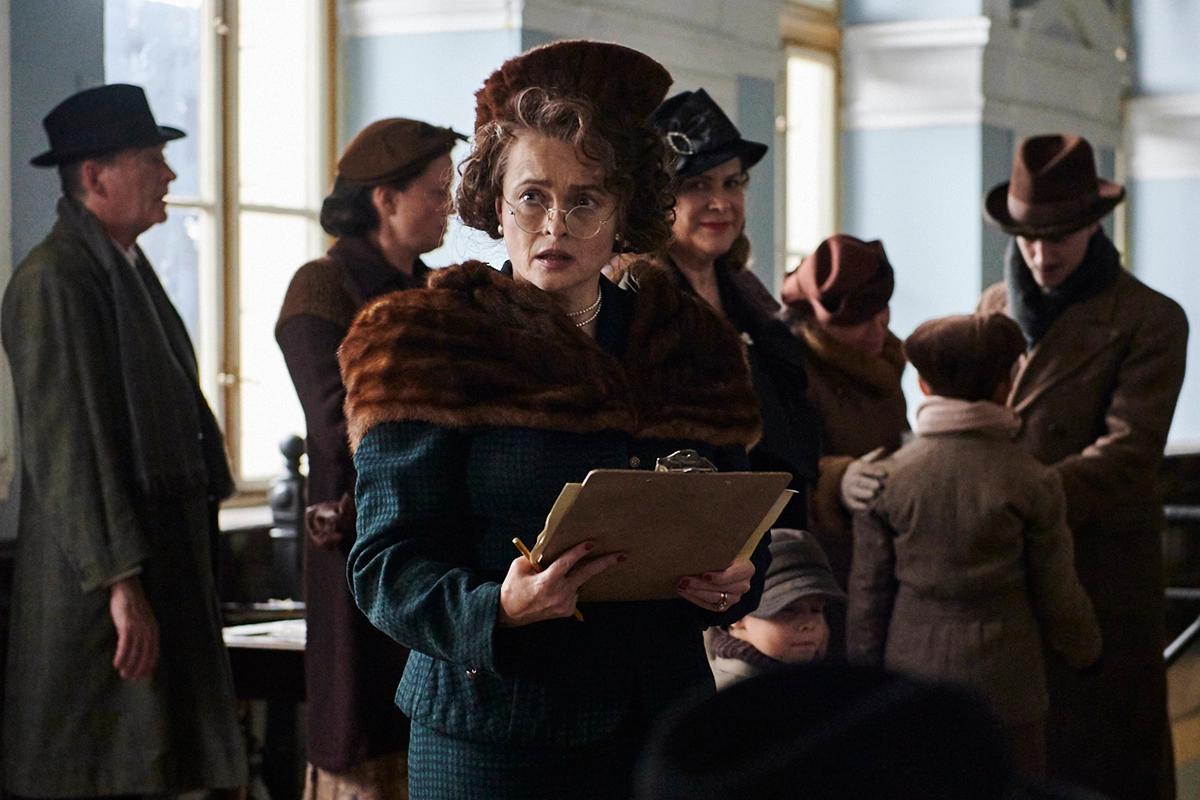
Several films about the Holocaust and survivors have been released in the past year, but fortunately, Anthony Hopkins stars in one with a unique happy ending that won’t leave a dry eye in the house. It is the directorial debut of James Hawes, based on a true story adapted from the book “If It’s Not Impossible…the Life of Nicholas Winton” written by Winton’s daughter, Barbara. She, along with Nick Drake and Lucinda Coxon wrote the screenplay.
Hopkins plays the elder Winton who, by the late 1980’s, is in retirement. But as a young stockbroker in London, he saw refugee children in dire straits in Prague, Czechoslovakia who were facing starvation and death as the Germans were on the march through Europe in 1939. Nicky was struck by their plight, handing out bits of chocolate knowing the futility of that gesture. Winton determined he had to help, setting up a humanitarian group that eventually placed 669 Jewish children with foster parents in Britain before the trains stopped running and the borders closed



Johnny Flynn (Emma, Stardust) plays the younger Winton, enlisting the help of his mother Babette, (Helena Bonham Carter). Babette had firsthand knowledge of being a refugee since her family had emigrated to Britain from Germany many years before. Interesting fact, Bonham Carter’s own family has history with this period. Her maternal grandfather, Eduardo Proper de Callejon, also rescued many Jews from the Holocaust, by forging Spanish exit visas.
Winton takes photos of the kids and starts a scrapbook with their names as he, his mother and compatriots set up a system to get exit-papers for the children and place them where they’ll be safe. Winton has to fight the bureaucracies in Czechoslovakia and Britain to speed the process while also asking parents to make the heart-breaking decision to give up their children knowing they may never see them again. Flynn shows Nikki’s compassion, even though he is not married and has no children of his own.
Director James Hawes with Cinematographer Zac Nicholson shot all of Hopkins’ scenes first, then showed them to Flynn so the actor could make the connection for his portrayal of Winton, as a humble, yet determined man. When Nikki’s wife, Grete (Lena Olin), asks him to please clean up his overstuffed, neglected home office while she goes away for a few days, he comes across the scrapbook with the pictures of all the kids. Some of whom he placed and others who perished. Hopkins shows Nikki overcome with guilt for all the children he was not able to save.
Hawes goes back and forth fairly well with flashbacks from Nikki’s frightening times of the late 1930’s to Winton’s passive retirement years in the 1980’s. The director takes you from the tense times getting kids safely on trains and out of danger, to Nikki and his wife in later life in their comfortable home outside London awaiting their first grandchild from daughter Barbara. Grete suggests Nikki watch popular BBC-TV show “That’s Life” to pass the time. He watches for a few minutes deeming it rubbish. Coincidentally, Director Hawes actually worked on that TV show earlier in his career.



When Nikki shows the book of the children to his daughter, she realizes that it needs to be seen to show what her father accomplished. Nicky and the scrapbook make their way to a meeting with Betty Maxwell, the wife of media mogul Robert Maxwell.The film builds to a crescendo when, despite his protests, Nikki goes reluctantly accepts an invitation to appear on “That’s Life” where the show becomes all about him. It’s a very emotional moment which Hopkins plays teary-eyed, in shock, but with great humility, as he sees the fruits of his labor from 5 decades ago. You can see segments from the actual broadcast on YouTube.
Hawes captures Hopkins’ and Flynn’s determination as the young and old men who wanted to make a difference at a dire time in history. Unfortunately, there are refugees still suffering in several places around the world and Nicholas Winton is an example of what a monumental humanitarian effort can do, as quoted in the film’s post scripts, “If you save one life, you save the world.” Hopkins’ and Flynn’s passionate performances more than illuminate that message.
Bleecker Street. 1 hour 49 minutes. PG









